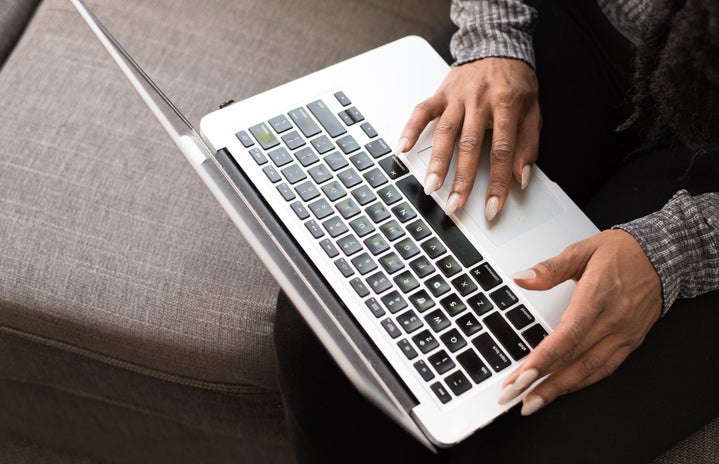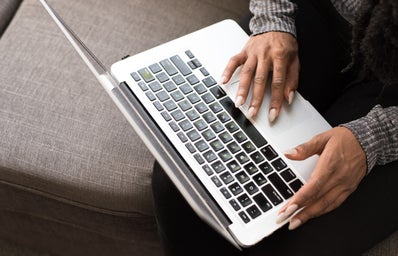If you’re anything like me, you’re beyond fed up with conservations about social media in general. You don’t want to hear how it helps us stay connected and informed. You don’t want to hear about how we spend too much time on it. You don’t want to hear about how fake and damaging it is- you’re sick of all of it. The topic has been beaten to death, and yet, it’s inevitably going to keep coming up. It is quite literally impossible to escape for people our age. Even if you personally do not use social media at all (which is rare and difficult), people around you are guaranteed to use it.
Throughout my life, I’ve Instagram, Twitter, Tumblr, Snapchat, and Facebook. Thankfully, there was never a point when I had all five at once. Now, I have small, non-personal Instagram and Twitter accounts to keep up with things I am a fan of, a Facebook so I can stay updated on groups I’m in, and a small, personal Snapchat. While it’s still probably too much and I do aim to cut down further, I find these accounts manageable and I do not feel they cause me stress or take away more from my life than they add to it.
There are several key steps I’ve taken to get to this point that is healthy for me.
Tumblr I simply outgrew in middle school. You know, after it did probably irreversible damage to my self esteem, body image, and overall well being by promoting eating disorders left, right, and center and glamorizing mental illnesses like anxiety and depression. Yeah… very thankful that phase is done and over with.
More recently, I started by completely cutting out the biggest offender- Instagram. Last year, after about 6 years of spending every day on that app, I finally deleted my personal account. At first, I missed it. I would try to open it without even consciously realizing, and I wondered what I was missing out on. Once that short period was over, I realized I had no regrets at all. I never had a huge Instagram (at most I probably had 600 followers and followed about 450 people), but it was still definitely overwhelming. I had to be honest with myself- I definitely did not have 450 or 600 friends, or even acquaintances, or even people I truly knew. I was seeing pictures of someone I sat behind in eighth grade math class at a party at a college I didn’t attend, with people I had never seen. Why was I doing this to myself? Why did I care if someone I went to summer camp with 10 years ago posted on their story that they were listening to a new album? Answer: I did not care. At all. I began muting people’s posts and stories because they had no bearing on my life whatsoever. Then, I realized everyone who warranted a mute should be unfollowed once and for all. I became devoted to carefully curating my followers and following, so much so that by the time I was done, my account had fewer than 100 people on it.
For some people, stopping here might be enough. I know friends who have small Instagrams and enjoy taking and sharing photos with people whose opinions and lives they care about. However, I had to keep being honest with myself: I did not even like taking or posting pictures. I actively disliked an activity that was part of my daily thought process for years. I realized that trying to curate and show off my life actually only caused me stress and discomfort. For me, there was no way to avoid comparison, insecurity, and self doubt. I had been willingly participating in something that brought me no joy, because I was seeking external attention and validation.
By now, I can pretty much categorize Instagram posts into three categories: posts that have nothing to do with me or my friends- so why should I care? Then, we have posts of my friends and not me- great, now I’m sad, miss them, and wish that were me (it gets way worse when it’s mutual friends without you). Finally, there are photos of my friends and me- now, I have to monitor the likes and comments to see what kind of reaction we’re getting. Do I look good? Who looks better, me or my friend? Is this the picture I wanted posted, or the one they preferred? Whose caption suggestion was this?
It was never-ending… until I realized that with the touch of a few buttons, I could walk away forever, because none of it mattered.
I think it is important to note that there are countless cool organizations, causes, and movements with social media presences. I invite anyone who finds it beneficial to follow them to do so. For me, however, I would still find their posts overwhelming, just as I did personal posts from friends and others. If they posted information, I probably would not sit and read it all, and if I did, I probably would not remember it for very long or put it into action. Being completely up front, sometimes I followed an account, like the ACLU for example, and part of my motivation would be hoping that other people would scroll through who I followed, see that, and think I was a good person… that’s pretty awful. Reiterating, I encourage anyone to get information and resources from social media if that is helpful for them, but if you’re like me, it is not the best approach to take in order to stay informed and involved.
I took a complete break from Instagram for about a year and I enjoyed it immensely. When I made a small, non-personal account (not even my name or picture) a few months ago, I felt I had successfully broken my dependency to the app. Now, I am free to follow a few- emphasis on very few, like single digits- accounts of my absolute favorite artists and entertainers. The posts I see do not stir up any of the negative emotions that I felt scrolling through my personal account.
Twitter was another stressor that had to go. On Instagram, I was trying to prove how attractive and aesthetic I was, while on Twitter, it was all about being the smartest, most “woke” (I hate that word), and funniest. I care deeply about social issues and social justice, but it became ridiculous to try to prove this to others by retweeting every headline and commentary I could find. Twitter was not really teaching me anything I could not learn elsewhere, and it was not prompting meaningful understanding or engagement. The thing about 280 character tweets is that they’re not exactly the best medium for having nuanced, complex, multi-faceted discussions. Even when there is good, well-intentioned information, it’s simply way too much for one person to take in, at all hours of the day, every day. Our brains aren’t built like that and cannot handle such an influx of input that is here one second and gone the next.
I also began to increasingly pick up on the fact that, on Twitter, going on the offense even when there was nothing to defend yourself from, and being as critical as possible, seemed to be the way to “win.” Day after day my timeline would be filled with “I can’t believe y’all are staying silent on this” “no one is talking about this” “if you really think that…” “if you do this…” “if you don’t do this…” I couldn’t stand having manipulative guilt trips by random strangers thrown in my face every day. I will never discourage anyone from sharing information and resources about a topic they are passionate about, but that should come from the heart, not from wanting to show off how much better of a person you are to avoid scrutiny. On Twitter, A N Y T H I N G can turn into discourse. And that discourse is A L W A Y S heated. I’m certain that people were making up fake arguments for the sake of publicly being on the correct side of them. Just like I had with Instagram, I became very caught up in this toxic swirling vortex, until the point when it hit me full-force the sheer ridiculousness of all the contrived drama.
Of course, I am concerned with U.S. and world events. I know that, because I read about them in the news, discuss them with friends and family, study them in my classes, donate to causes, volunteer my time, attend protests and demonstrations, etc. It has nothing to do with Twitter. Twitter was actually holding me back from more worthy ways of engaging.
Again, I needed to go cold turkey for a while. I needed to experience a non-Twitter world to remind myself that Twitter is not real life. Again, after I felt the spell had been broken. I had accounts I truly wanted to follow because I was a fan. I made a small, non-personal account with no connections to me. Still, the hostile discourse crept in. Of course it did, it’s Twitter. Now, if I notice one of the few (very few) accounts I follow engaging with too much negativity in a non-constructive manner, I swiftly unfollow them and don’t look back. Thankfully, though, sometimes the people I follow like and retweet some pretty hilarious things. Twitter undoubtedly gets me laughing sometimes, and I am thankful for that.
On to Facebook… personally, I was never guilty of spending too much time on Facebook. Like many our age, I made one to be in college groups, but hated going on. It was either boring, a relative’s awful political opinions, or my mom tagging me in the ugliest picture you have ever seen. I navigate hating Facebook but needing it for groups by, first and foremost, not having the app on my phone. I only use the website on my laptop and that has worked tremendously. Also, I kept my friends list small and selective. When someone couldn’t be unfriended because they were a (questionable) family member, they were muted or unfollowed. If someone posted too much, they got the same treatment. Now, I am only in groups, and I only check them if I am looking for specific information and updates that pertain to me.
Lastly, Snapchat. I have always found Snapchat quite stupid and did not make my account until college, to join a group chat. First of all, it’s the worst possible platform for a group chat, so that was already annoying. Making my account very late helped to eliminate the problem of old friends and acquaintances that I no longer keep up with. My Snapchat has about 40 people on it and I can honestly say I care about every single one of them. In fact, I removed a few people just now while writing this to keep myself honest. Another piece of advice is to not be afraid to get rid of the person you have not spoken to in years. Be honest with yourself- you clearly do not need each other. You are not in each other’s lives in real life, so what’s the need for virtual updates?
I recommend keeping, if any, the social media you get least addicted to. I also think Snapchat is not as much of a black-hole time-waster because it is contained to people I’m friends with, and I’m not seeing other people’s following lists and what posts they’re engaging with. There’s far less aesthetic pressure than Instagram and far less “woke” pressure than Twitter. My friends and I can communicate with little outside influence or pressure.
Probably the most important lesson of this article: I have never once in my life unfollowed an account and then missed them or regretted that decision afterward. I have never once deleted an account and thought “wow I really wish I were hearing random people’s thoughts on an extremely sensitive issue.” I have never been having fun and thought “I wonder what other people are posting right now” and I have DEFINITELY never been in a bad mood and thought “I wish I could see other people having fun (or pretending to) right now.”



